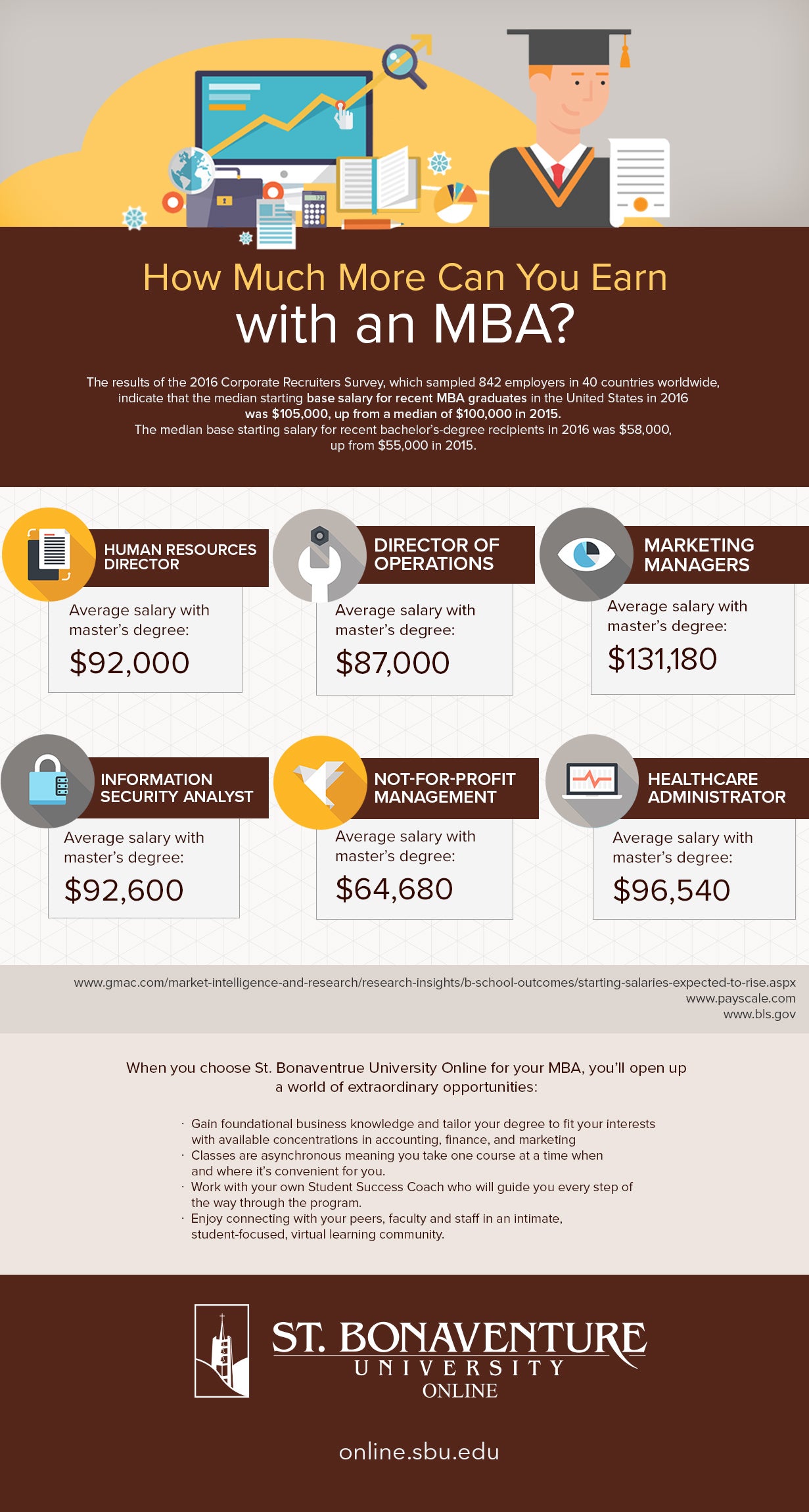
If salary is a major motivator in your career choice, you should do solid research before you commit to a degree program. On average, people with master’s degrees do earn more than people with bachelor’s degrees. One of the most popular master’s degrees is an MBA.
Here are common job positions and their salaries for MBA’s:
Human Resources Director
Average salary with master’s degree: $92,000
Basic role description: Overall responsible for the running of the HR department and its profitability.
Director Of Operations
Average salary with master’s degree: $87,000
Basic role description: Overseeing the operations of most areas of the business, from finance to HR.
Marketing Managers
Average salary with master’s degree: $131,180
Basic role description: Management of all marketing activities, including developing marketing strategy and running campaigns.
Information Security Analyst
Average salary with master’s degree: $92,600
Basic role description: Planning IT security measures and putting them into place for systems, networks and data.
Not-For-Profit Management
Average salary with master’s degree: $64,680
Basic role description: A huge focus on fundraising efforts, along with creating strategic plans and managing personnel.
Healthcare Administrator
Average salary with master’s degree: $96,540
Basic role description: Largely responsible for budgeting, overseeing the running of the establishment, and managing staff.
Take a look at the infographic below for more information.

Infographic Design By SBU Online’s MBA Program



